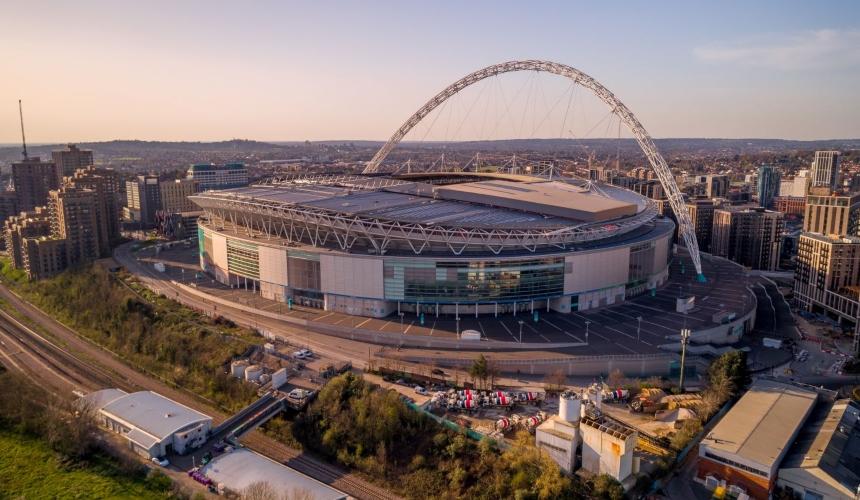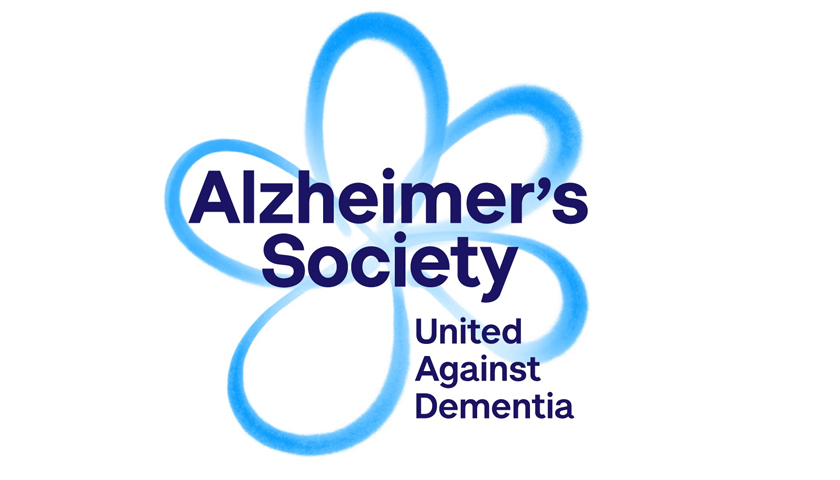The Football Association (FA) backs landmark guidance developed by charity for all stadiums and sports grounds, with likes of Premier League and Racecourse Association pledging commitment.
The Football Association (FA) has worked with its official charity partner, Alzheimer’s Society, to put in place a series of improvements to the iconic Wembley Stadium, changing the game for fans with dementia.
Making Wembley dementia friendly
After an audit of the stadium by people affected by dementia, who were invited to attend two matchdays and provide feedback, several supporting measures have been put in place to improve accessibility and increase understanding and knowledge of dementia.
Measures include bespoke training to public-facing staff like matchday stewards, information on ticketing receipts and the Wembley Stadium website and increased visibility of current services available, such as its dedicated lifts and accessible shuttle service.

Wembley is the first stadium in the UK to become dementia friendly, as part of The FA’s partnership with Alzheimer’s Society.
As well as becoming the first national stadium to become dementia friendly, The FA is backing Alzheimer’s Society’s Dementia Friendly Sports Clubs and Venues guide. The new guidance is designed for grounds and stadiums of all sizes, to help make sure all fans are supported, understood and know where to get help on gamedays.
The landmark guidance has already resulted in The Premier League and The Racecourse Association all pledging their commitment to become dementia friendly.
Alzheimer’s Society CEO, Kate Lee, said: ‘Passion for sport stays with people long after a dementia diagnosis, so these improvements to one of the world’s most iconic football stadiums, in a national first, is set to be another legacy of our fantastic partnership with The FA and will make a massive difference to thousands of fans up and down the country.’
We want to see all sports showing their commitment to giving fans with dementia a smooth journey from sofa to stands and we’re really pleased to see our landmark guidance be so well received by organisations across multiple sports.
We hope our guidance helps foster a more inclusive, accessible and welcoming environment for sports fans with dementia, so they can continue to be at the heart of the action.
Director of Wembley Stadium, Liam Boylan, added: ‘The changes we’ve made at Wembley are the first steps in ensuring that those who are affected by dementia are not excluded from the beautiful game and can continue to enjoy the sport they love safe in the knowledge that their support and wellbeing is our top priority.’
Sport has an unrivalled ability to inform, educate and put a spotlight on important issues and we look forward to continue working closely with Alzheimer’s Society to raise funds and awareness to help provide desperately-needed support to the 900,000 people with dementia in the UK.
A guide to making sports clubs and venues dementia friendly
Alzheimer’s Society’s Dementia Friendly Sports Clubs and Venues guide was created by Alzheimer’s Society’s Sport United Against Dementia Board, which funded a dedicated role at the start of last year, including contributions from the Premier League and other sporting stakeholders.
The charity has engaged directly with clubs from multiple sports, professional bodies and people affected by dementia, with the aim of sharing best practice and identifying key challenges and positive solutions.
There are 900,000 people living with dementia in the UK, enough to fill Wembley 10 times over. Whilst great sport should be unforgettable, sporting venues present unique challenges to those living with dementia.
Many find matchdays too disorientating and overwhelming, particularly due to large crowds and noise levels, the size of the venue and inability to communicate.
As well as case studies from the Premier League, clubs who fed into the guidance include Swansea City AFC, who partnered with Alzheimer’s Society Cymru in July 2021. The club set up a working group of fans affected by dementia and implemented a series of improvements such as new signage and first and last steps within the stadium painted red to assist those with perception issues.
Impact of dementia friendly sport
Jonathan Pinkney, the son of Brighton and Hove Albion season ticket holder, John Pinkney, who lives with dementia, said: ‘Dad has been a life-long Brighton fan, but his dementia diagnosis changed everything.’
‘It proved really difficult to use public transport after his diagnosis. He gets anxious if it gets too busy and crowded, especially when queueing. But on the few occasions I have needed help from Brighton FC’s stewards, they have been incredibly supportive.’
Going to a football game is great because for 90 minutes, it’s just dad being dad like he always was. That’s why Alzheimer’s Society’s work to make stadiums dementia friendly is fantastic.
The FA has extended its official charity partnership with Alzheimer’s Society until July 2024. The partnership has already made a tangible impact – over the past two seasons, the partnership has raised over £400,000, with thousands more fans, players and staff now knowing where to go to access vital dementia support.


